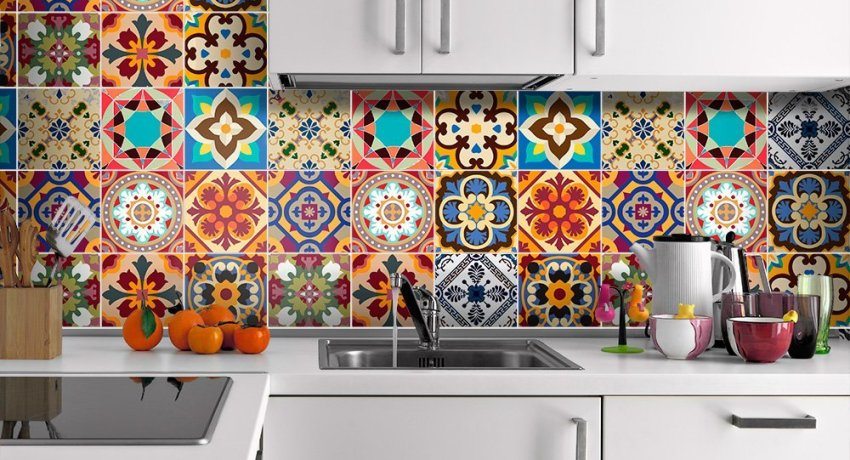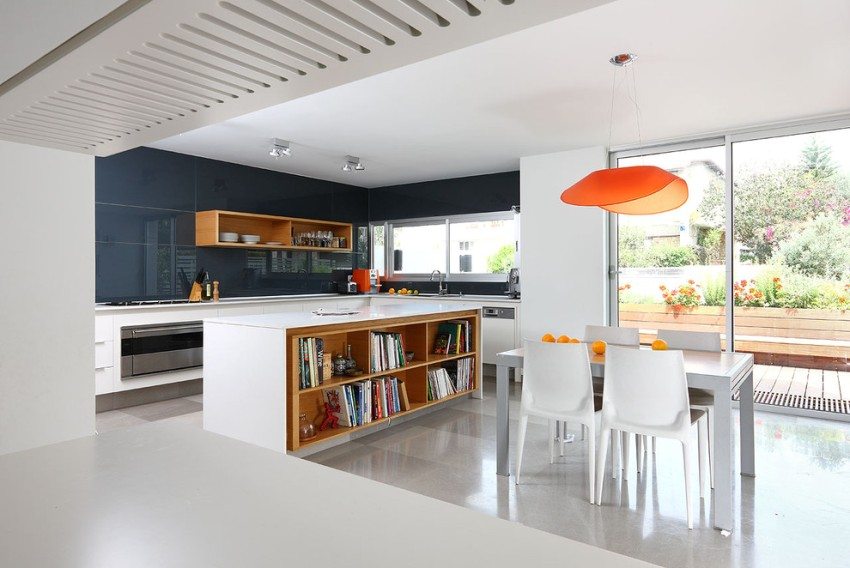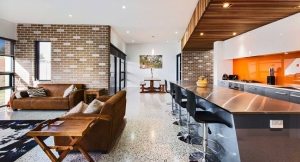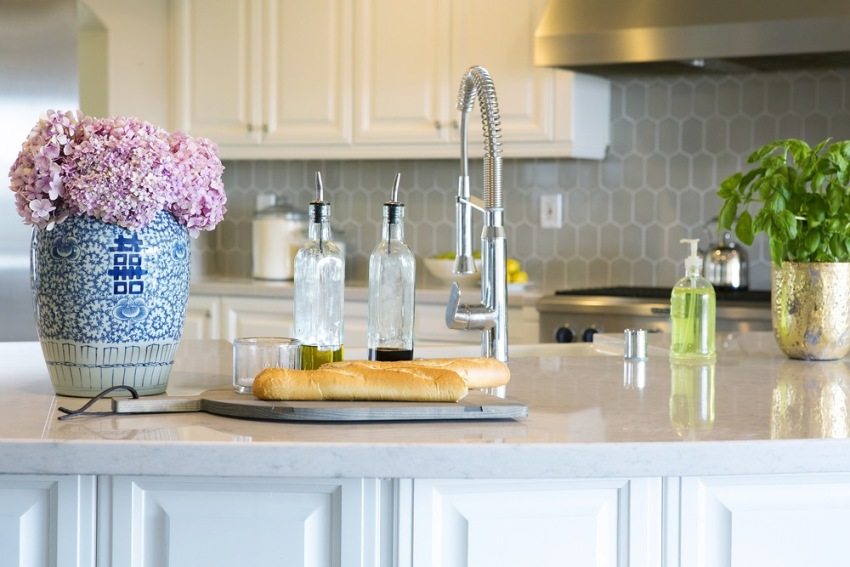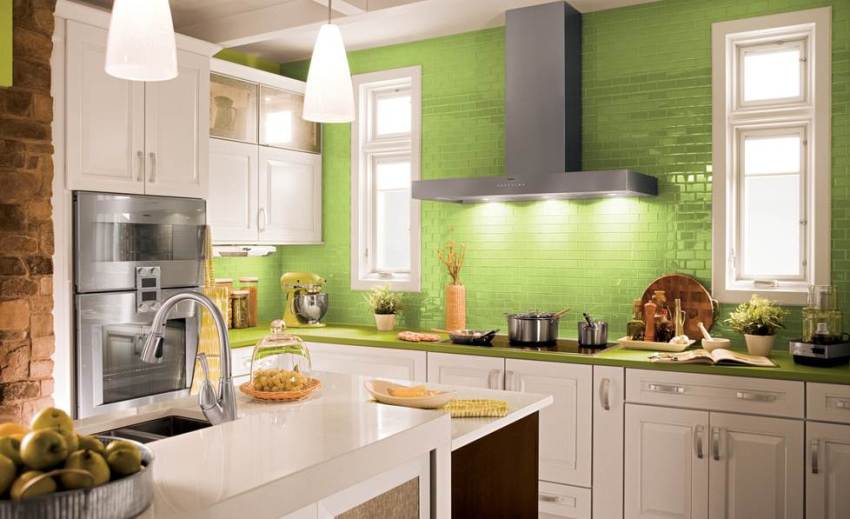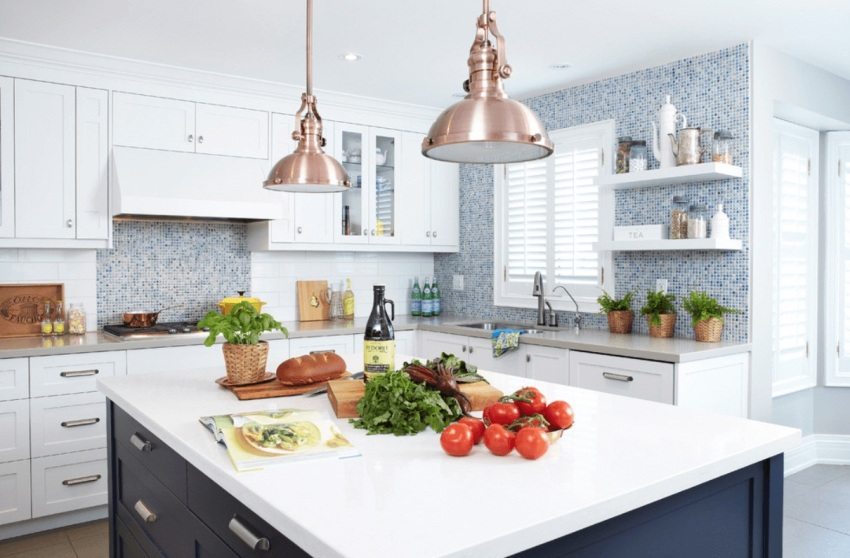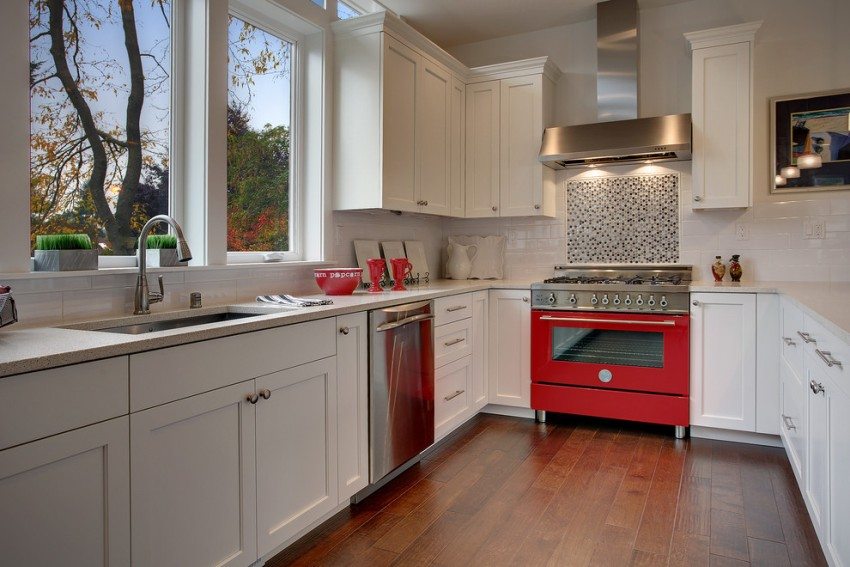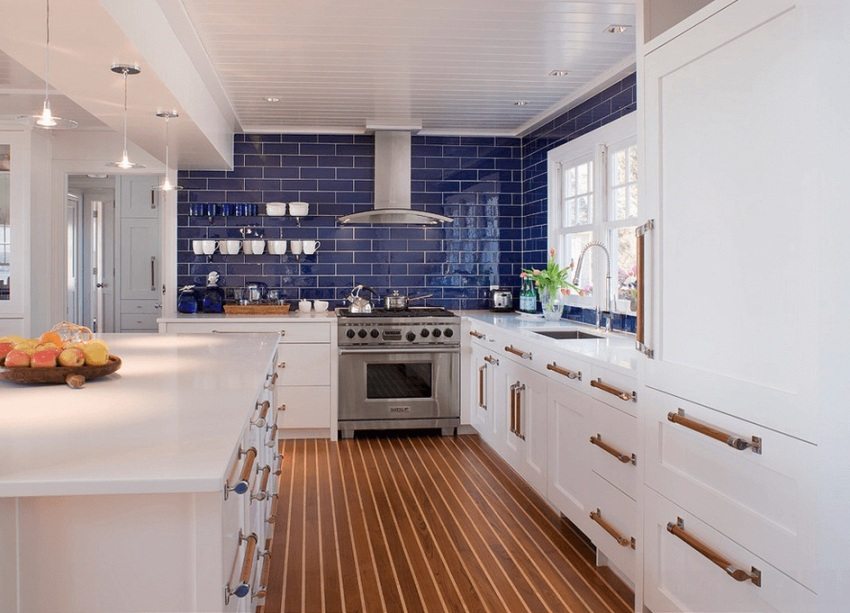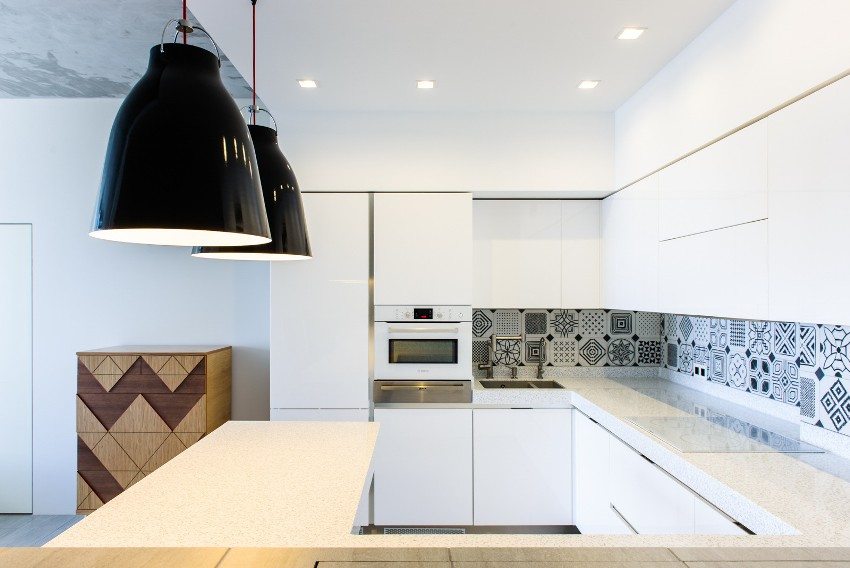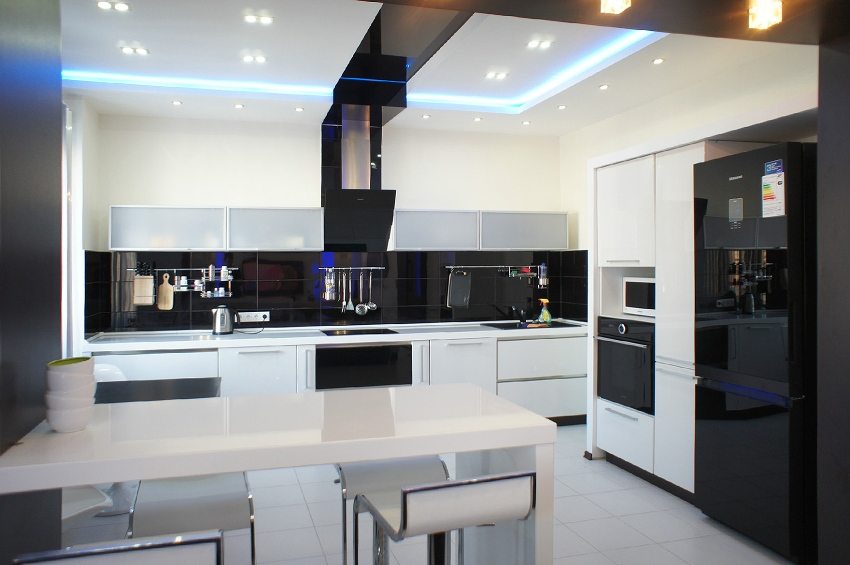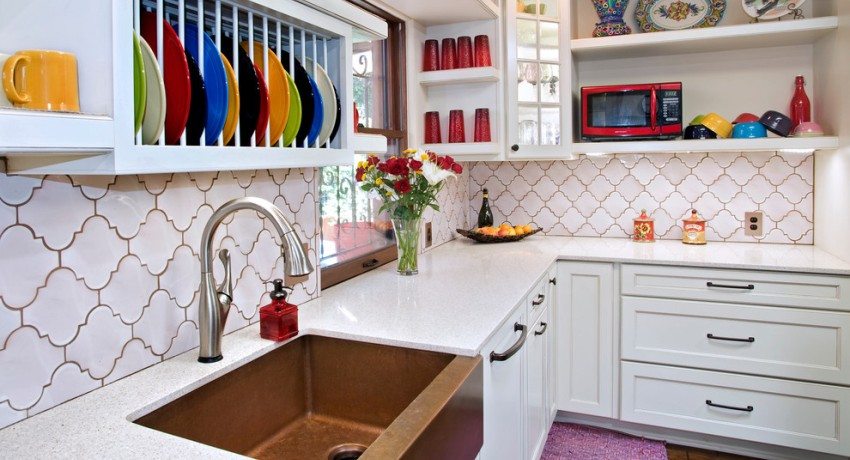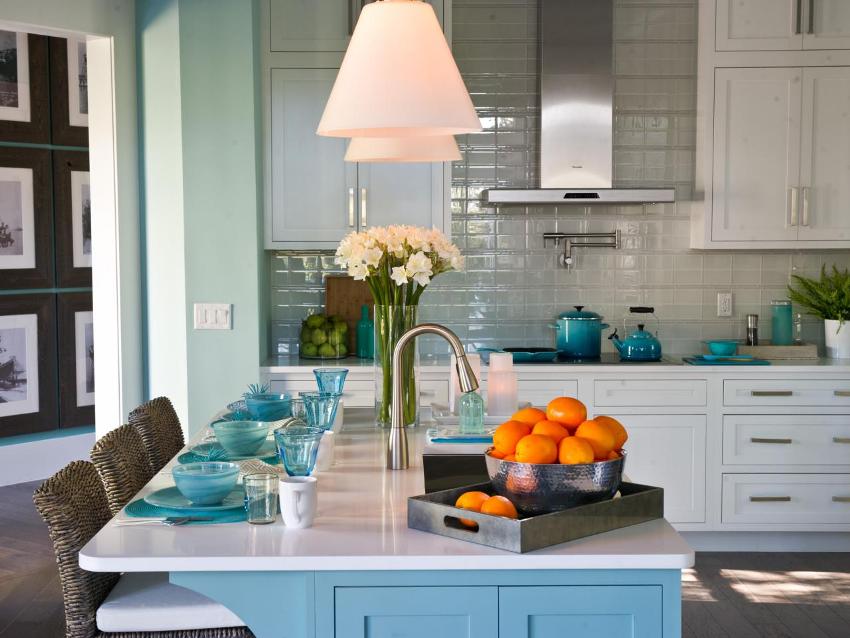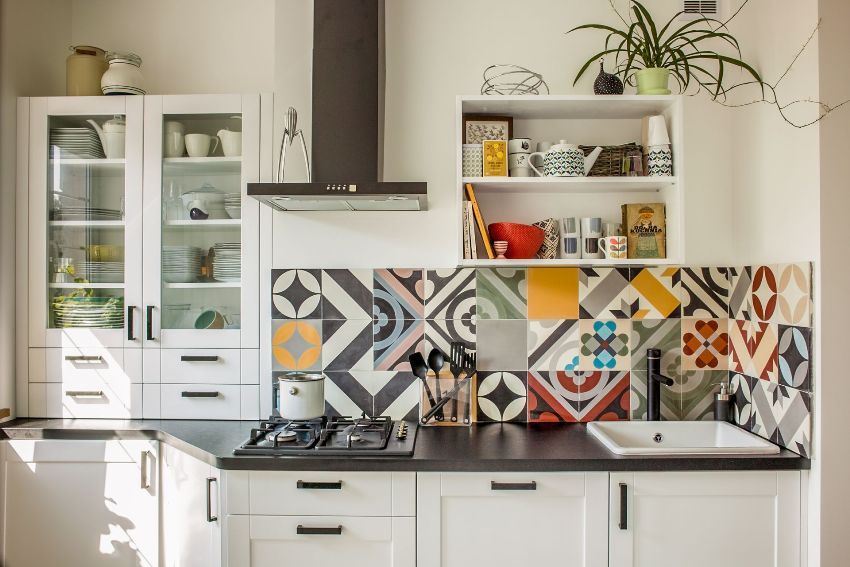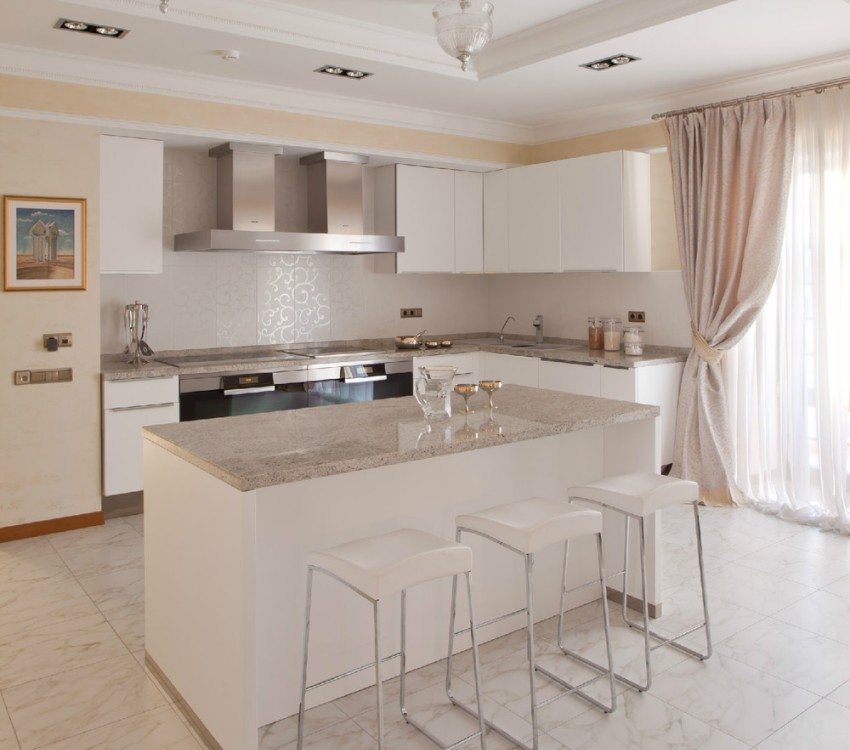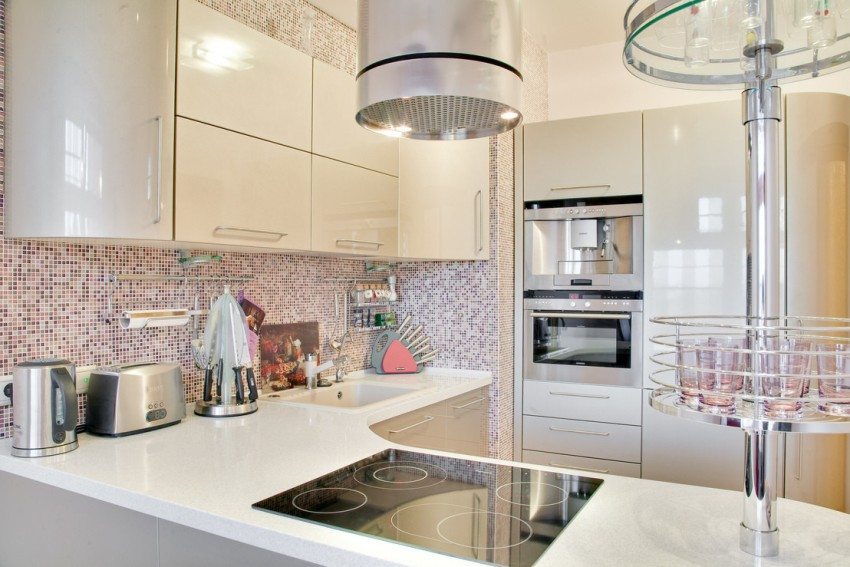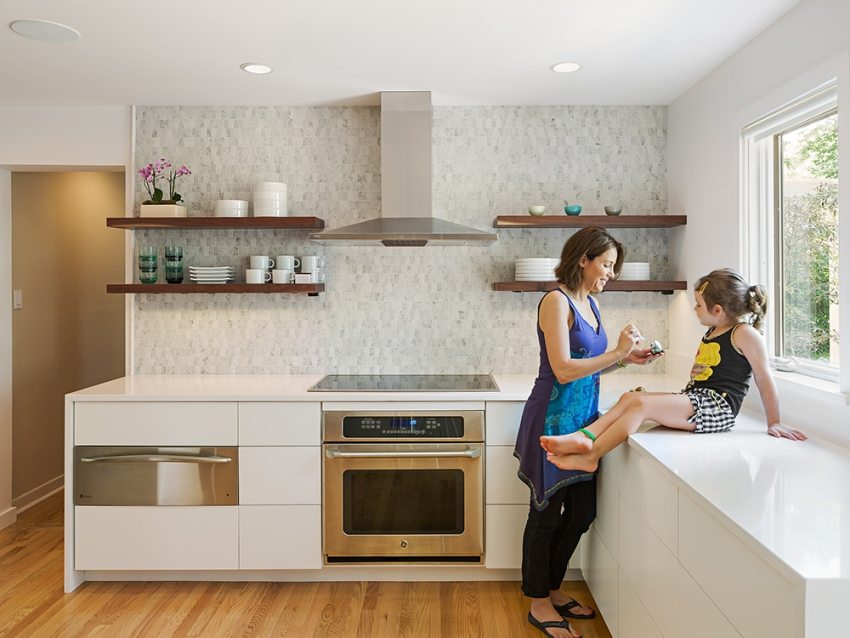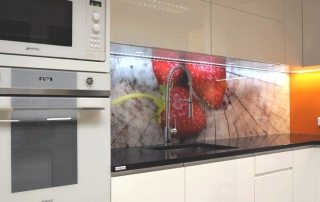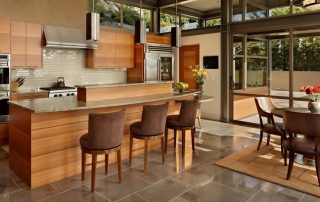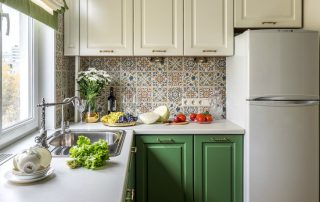The beautiful kitchen cheers up and is the pride of the hostess. They especially try to highlight the apron - the section of the wall between the upper drawers and countertop... To achieve the desired effect, you only need to select the right tile for the backsplash in the kitchen. Photos of tiles are widely presented on the websites of manufacturing companies.
Content [Hide]
Kitchen apron tile. Photo tiles of different types
When choosing a wall covering, you need to pay special attention to some of the necessary properties of the tile:
- dense, smooth, uniform surface. Embossed tiles are definitely not suitable for an apron - it will quickly become clogged with dirt, which is difficult to clean;
- thermal resistance. Hot splashes, steam and water will constantly fall on the coating, which should not damage the tile;
- resistance to aggressive detergents. The apron will have to be washed from fat every day.
Strength for tiles is not so important, since the wall is practically not exposed to mechanical stress.
Related article:
|
Today, the building materials market offers a wide variety of coatings for the kitchen on the apron.
Ceramic tile
The material is selected glazed, dense, with low porosity. The "hog" is especially popular - small-format rectangular beveled tiles (beveled end edge). Lay it with a dressing, imitating a brick wall. At the same time, a contrasting grout is sometimes used to emphasize the nature of the masonry.
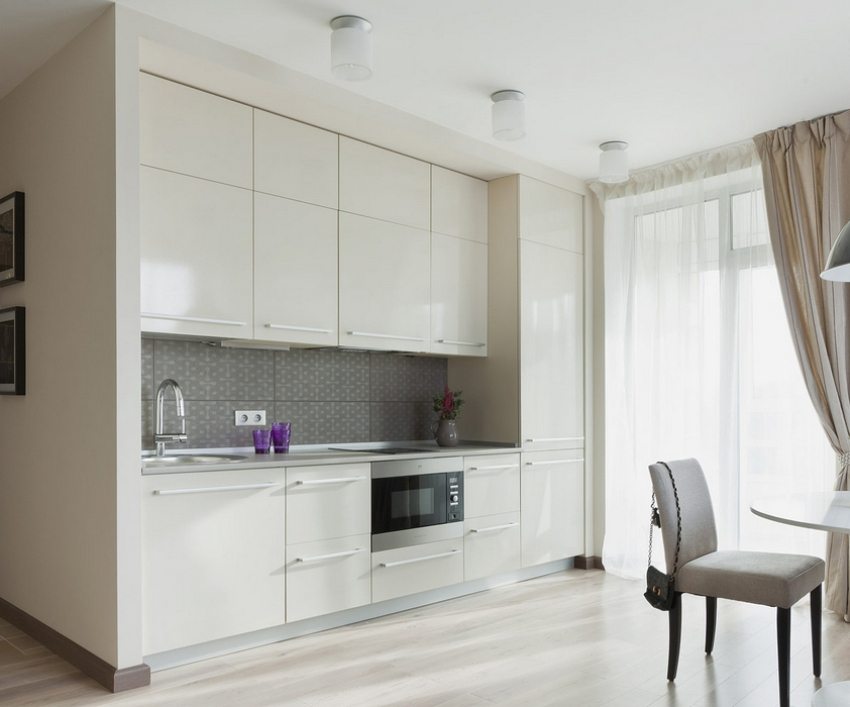
Tile apron with a matte surface harmonizes perfectly with a glossy kitchen wall
Mosaic
These are small size ceramic or glass tiles (smalt). Ornaments and whole panels are laid out from it. Most often, three to four shades are used for decoration, but complex multi-color images can also be laid out. Ornaments for high-tech kitchens are created from silver or black and white mosaics... They select material from catalogs of tiles for an apron for the kitchen. A qualified specialist should be engaged in laying smalt.
Porcelain stoneware
The material differs from ceramics in its high density, uniform shade and large dimensions (400 × 400 mm). Polished porcelain stoneware has zero water absorption, which allows it to be successfully used as a backsplash tile in the kitchen. The photo of the tile demonstrates the visual perception of the wall as a whole. The minimum of tile seams makes it easy to clean the apron.
Advice! The tiles used for the kitchen walls should be flush with the backsplash.
Mirror apron
Mirrored surfaces are best for small kitchens. Reflection visually expands the tight space. True, tables and windowsills should be empty. Otherwise, multiple reflected kitchen items will create a cluttered effect. Washing mirrors is also not easy.
When installing, it must be borne in mind that the mirror tile is 4 mm thick, and the ceramic tile is 8 mm. If the walls are lined with ceramics, then a thicker substrate will have to be made under the mirror. Despite such difficulties, the mirror is often chosen as a tile for an apron in the kitchen. Photo tile attracts with its bright and unusual appearance.
Glass (skinned)
The glass tile is made of 6mm tempered glass. This material is stronger than the windshield of a car. Its melting temperature is over 400 degrees. Skinali has a wide range of design possibilities. Any image is applied to the tile using the method of photo printing. This can be the effect of ice, silver, fogged glass with water drops. Panoramic photos of people, landscapes, city architecture are often ordered.
Ceramic tiles for the kitchen on the apron
Ceramics is traditionally the most demanded material for kitchen decoration. Material advantages:
- water resistance, which is especially important when the room is humid;
- inertness to aggressive liquids - boiling sprays, steam, food and non-food colors;
- durability. Correctly laid tiles will last for many decades;
- extensive palette of shades. You can be convinced of this by looking at the tile catalogs for the kitchen apron;
- the ability to combine with other materials - wood, glass, metal;
- environmental Safety. Ceramics contains one main component - refractory clay, harmless to human health;
- strength. Sintering into a shard at high temperatures, the material is practically not subject to destruction. Fireplaces and stoves, faced with ceramics, have adorned the halls of ancient palaces for centuries;
- fire resistance. The tile does not burn and does not emit any compounds when heated. These properties are extremely important for close contact with a gas stove;
- preservation of the original appearance. The coating does not change color under the influence of sunlight, moisture, detergents, temperature changes;
- hygiene. The tile is easy to wet clean. The tile joints are impregnated with special compounds so that they are not clogged with dust and soot.
Advice! Buy ceramic backsplash kitchen tileswith a margin of 10%. Several pieces are bound to crack or break for a variety of reasons. The packaging also contains copies of a different shade, which will ruin the whole idea. Manufacturers of inexpensive tiles allow up to 5% of scrap in one batch.
Apron design
In an ordinary average kitchen, tiles are most often laid in soothing colors - beige, sand, light gray. To somehow revive the monotony of the wall, use patterned tiles. They are distributed over the entire area of the apron, or placed in an ornament. If the inserts are taken from another collection, it is necessary to ensure that their thickness and dimensions match the parameters of the background ceramics. Then the masonry will look uniform.
Often, panels are created from inserts in a classic or rustic style. The drawing depicts some kind of pastoral motive, such as a landscape, a house or blooming sunflowers. This image needs symmetry and space, so we place it in the very center of the apron.
A frieze of country-patterned tiles completes the wall. A strip of these tiles can be run in the center or along the edge of the apron.
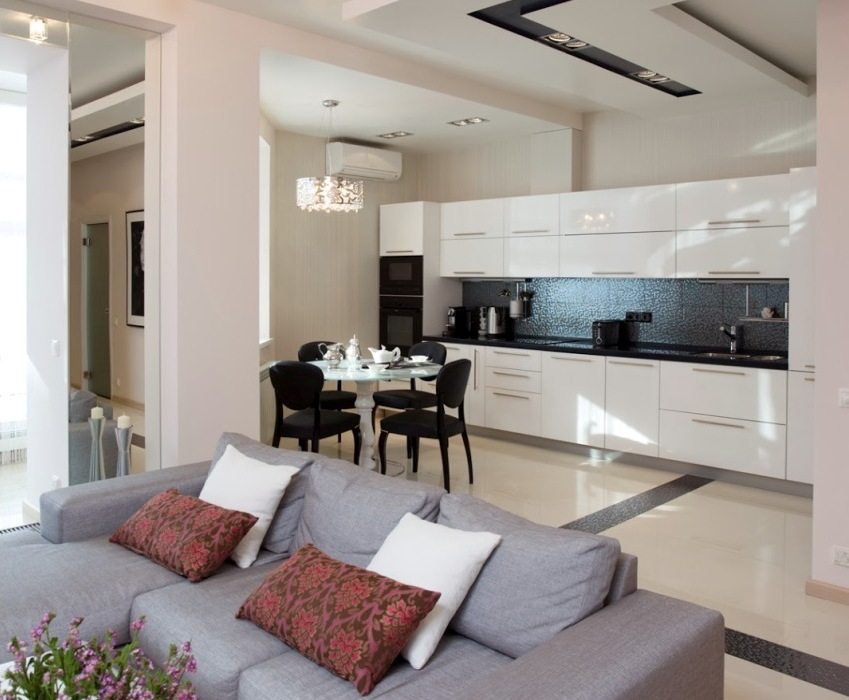
Apron in the kitchen made in contrasting dark blue color
No matter how ultramarine or poisonous green tiles strike your imagination, it is better to avoid avant-garde shades in the kitchen. The same can be said for the black and white cage. This chessboard will soon get bored with its obsession. The apron in the kitchen is made in a contrasting dark blue color
Tips for choosing tiles
Having made the decision to lay out an apron in the kitchen, you need to consider a number of important points:
- there is a rule: the larger the tiles in size, the more waste will be, and vice versa. Small parts are easier to adjust to the size of the laid out area. When ordering large-format ceramics, we add another 5-8% of the total;
- the most consumable material is the diagonal arrangement of the tiles. In this case, up to 15% will have to be added to the calculated amount;
- with a margin, it is necessary to take also for the reason that the tiles in other parties will necessarily differ in color and thickness;
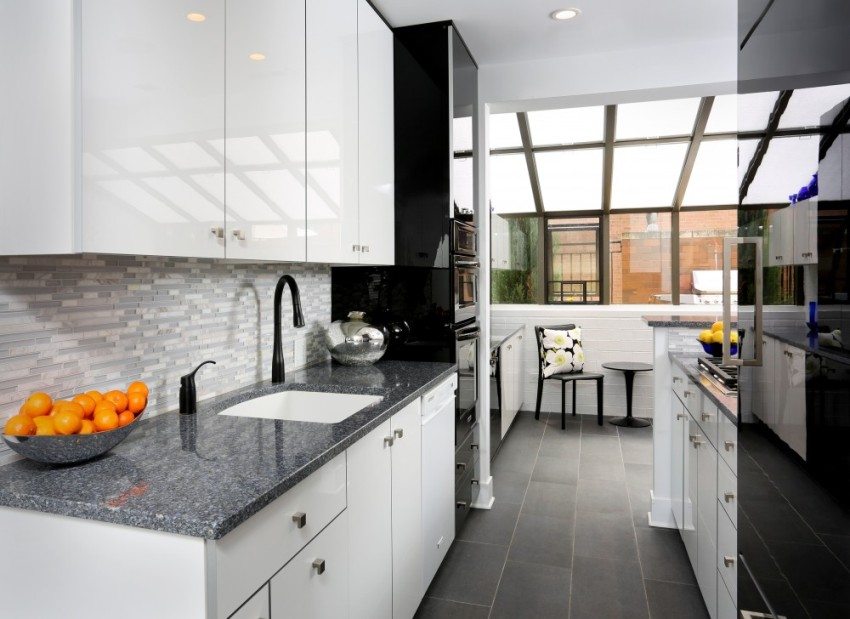
It is not possible to tile the entire wall with tiles in the kitchen, but only the space between the lower and upper cabinets
- the smaller the kitchen area, the smaller the size of the backsplash tile should be. Photo tiles also does not always match exactly the color of samples in catalogs;
- if you cannot match the color of the tiles to your kitchen, choose white, this is a win-win option. You can take shades of white: milky, creamy, snowy. Here you still need to take into account the type of lighting: in cold light, ceramics looks different than in warm light;
- the smaller the tiles, the more expensive they take for work.
Finally. Choosing the right tile for an apron is a responsible business. Cheap acid-colored ceramics will soon make you want to replace them. Dismantling and laying the coating will actually result in a new renovation, so it is better to immediately purchase high-quality building materials.
